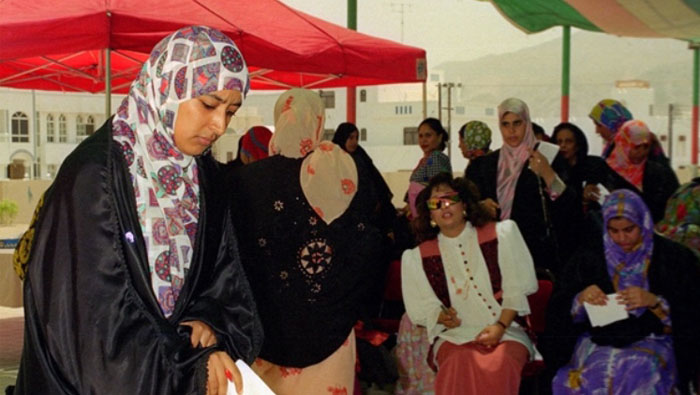
Muscat: The Shura march laid down by late His Majesty Sultan Qaboos bin Said bin Taimour has evolved after decades of development. It began in the second decade of the renaissance march through the foundation of the State’s Consultative Council in 1981, followed a decade later by the Majlis Al Shura in 1991.
The Shura march witnessed leagues of successive developments before reaching its prime in the form of a bicameral institution known as the Council of Oman which comprises the State Council (of appointed members) and Majlis Al Shura (of elected members), with each council enjoying a legal character and financial and administrative independence.
Article (9) of the Basic Law of the State defined the global values and fundamentals of the system of rule in the Sultanate, stating that justice is the basis of rule, alongside Shura (parliamentary consultation), equality and citizens’ right to participate in public affairs.
Article (59) stipulated the principle of sovereignty of rule of law.
Article (10) laid down the basic principles guiding the Sultanate’s policy, including the establishment of proper grounds for the enhancement of pillars of an upright Shura experience emanating from the nation’s heritage, values and Islamic Sharia.
A Shura practice that celebrates the country’s history, while at the same time espousing the beneficial norms of the modern age for the establishment of a sound administrative system that guarantees justice, peacefulness, concord and equality among citizens, as well respect for the public order and the supreme interests of the state.
Royal Decree No.94/91, issued on November 12th, 1991, promulgated the establishment of Majlis Al Shura and coincided with the start of the third decade of the blessed renaissance, ushering in a new era of development and growth as mentioned in the Royal speech of the late His Majesty Sultan Qaboos bin Said within the context of permanent principles orienting the Sultanate’s policy as stated above.
As for parliamentary instruments enforced by the Majlis Al Shura, it is observed that the powers practised by its members contributed greatly to honing this experience and realised tangible results in the Shura practice.
In this context, it should be noted that the cooperation of the executive authority with the Majlis was highly valuable, and its significance reflected in formulating the Majlis’s monitoring role.
This cooperation applied the desired methodology by which the Sultanate operates. Hence it is an interactive process involving all apparatuses of the state, the legislative and executive ones—all with the prime aim of serving the interests of the state and citizens, albeit in terms of development projects, among other achievements.
Upon the opening of the third session of Oman Council, the late His Majesty Sultan Qaboos bin Said, expressed his determination to consolidate the method of Shura and develop it in a manner that responds to the country’s interests and citizens’ aspirations. His speech read as follows: “We wished, since the beginning, that Oman would have its own exclusive experience in the field of democratic practice and citizens’ participation in national decision making. It is an experience to be built step by step on firm grounds of reality of Omani life. The age in which we live stands witness to this, and so do the measures of progression that we have undertaken, the last of which has been granting suffrage rights to all citizens, men as well as women, who meet legal requirements.”
During its past terms, the Majlis conducted a number of studies and research projects. It studied and discussed many topics and drafts of laws and agreements forwarded to the Majlis or presented by the Majlis after being approved.
Majlis Al Shura members are elected through free polling by citizens, who select representatives of their wilayats at the Majlis’s board.
The Chairman of the Majlis is elected from among the elected members. This was the practice implemented for the first time in the Majlis during the 7th Term of Majlis Al Shura. It was actually the step envisioned by the late His Majesty Sultan Qaboos bin Said bin Taimour, who anticipated the ripe time for granting the Shura experience in the Sultanate its real acreage through the Majlis’s practicing of its own prerogatives.
The nine terms of Majlis Al Shura witnessed practical implementation of Shura method, and that was achieved through a set of democratic instruments and sittings that elaborated on draft laws and discussed proposals and replies of government departments to the Majlis’s queries.
This practice helped resolve many issues and avoid many obstacles that impeded the smooth flow of services to citizens, either by the government sector of the private sector, thanks to active communication among the departments concerned aimed at reaching commonly agreed visions.
Elections of Majlis members assumes great significance to regional and international analysts and observers who consider it a historic turning point in Omani, Arab and regional democratic practice due to the qualitative leaps in the parliamentary practice in the Sultanate since the beginning of the renaissance led by the late His Majesty Sultan Qaboos bin Said.
The admirable part of this practice was the smooth progression of the role of Shura bodies in the Sultanate—from consultative to parliamentary, and from Shura to monitoring, auditing and legislative, as testified by the latest three terms and the current term of the Majlis. -ONA